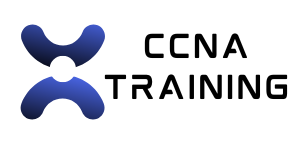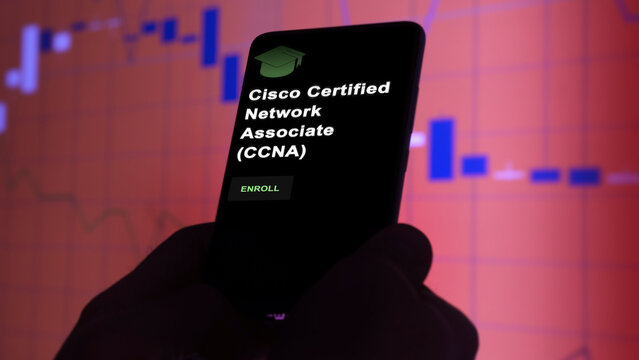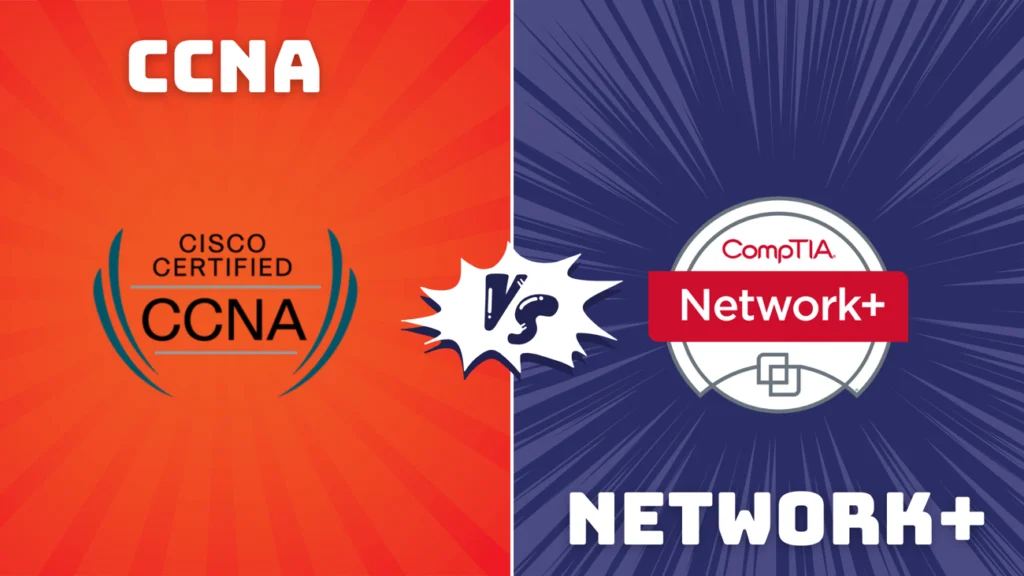A CCNA Boot Camp is an intensive training program designed to prepare networking professionals for the Cisco Certified Network Associate (CCNA) certification exam. The boot camp typically lasts for a short period of time, ranging from a few days to a few weeks, and provides an accelerated learning experience for individuals looking to advance their careers in the field of networking. The program is often led by experienced instructors who guide students through a comprehensive curriculum that covers the fundamentals of networking, routing and switching, security, and more. The goal of a CCNA Boot Camp is to equip participants with the knowledge and skills needed to pass the CCNA exam and excel in their networking careers.
A CCNA Boot Camp is an ideal option for individuals who are looking to quickly gain the necessary skills and certification to advance in their networking careers. The program is designed to provide a focused and immersive learning experience, allowing participants to fully immerse themselves in the material and prepare for the CCNA exam in a short amount of time. Additionally, the boot camp format is often preferred by working professionals who may not have the flexibility to commit to a long-term training program. By condensing the material into a shorter timeframe, participants can efficiently gain the knowledge and certification they need to take their careers to the next level. Overall, a CCNA Boot Camp offers a fast-paced and comprehensive learning experience for networking professionals looking to enhance their skills and credentials.
Key Takeaways
- A CCNA Boot Camp is an intensive training program designed to prepare networking professionals for the Cisco Certified Network Associate (CCNA) certification exam.
- Networking professionals can benefit from a CCNA Boot Camp by gaining in-depth knowledge of networking concepts, hands-on experience with Cisco equipment, and the opportunity to earn a globally recognized certification.
- The curriculum of a CCNA Boot Camp typically covers topics such as network fundamentals, LAN switching technologies, routing technologies, infrastructure services, and infrastructure maintenance.
- To prepare for a CCNA Boot Camp, networking professionals should review the exam objectives, practice with Cisco equipment, and consider taking practice exams to gauge their readiness.
- After completing a CCNA Boot Camp, networking professionals can pursue job opportunities such as network administrator, network engineer, and systems administrator, and may also have opportunities for career advancement in the field of networking.
Benefits of CCNA Boot Camp for Networking Professionals
One of the key benefits of a CCNA Boot Camp is the accelerated learning experience it provides. The program is designed to cover a wide range of networking topics in a short amount of time, allowing participants to quickly gain the knowledge and skills needed to pass the CCNA exam. This intensive approach can be particularly beneficial for individuals who are looking to advance their careers quickly or who may not have the flexibility to commit to a long-term training program. Additionally, the focused nature of the boot camp allows participants to fully immerse themselves in the material, leading to a deeper understanding of networking concepts and principles.
Another benefit of a CCNA Boot Camp is the opportunity to learn from experienced instructors. The program is typically led by industry professionals who have extensive experience in the field of networking. These instructors can provide valuable insights and real-world examples that can enhance the learning experience for participants. Additionally, the small class sizes often found in boot camp programs allow for more personalized attention and support from instructors, creating a supportive learning environment for participants. Overall, the opportunity to learn from experienced professionals can greatly enhance the value of a CCNA Boot Camp for networking professionals.
Curriculum and Training Structure of CCNA Boot Camp
The curriculum of a CCNA Boot Camp is designed to cover all the essential topics and skills needed to pass the CCNA certification exam. This typically includes an in-depth exploration of networking fundamentals, routing and switching, security, and more. The training structure is often fast-paced and immersive, with a focus on hands-on learning and practical application of networking concepts. Participants can expect to engage in a variety of learning activities, including lectures, lab exercises, group discussions, and practice exams. The goal is to provide a comprehensive and dynamic learning experience that prepares participants for success on the CCNA exam.
In addition to the core curriculum, many CCNA Boot Camp programs also offer supplemental resources and support to help participants succeed. This may include access to study materials, practice exams, and one-on-one support from instructors. The training structure is often designed to be flexible and accommodating, allowing participants to engage with the material in a way that best suits their learning style. Overall, the curriculum and training structure of a CCNA Boot Camp are carefully crafted to provide a comprehensive and effective learning experience for networking professionals.
How to Prepare for CCNA Boot Camp
| Topics Covered | Duration | Study Material |
|---|---|---|
| Networking Fundamentals | 2 days | CCNA Official Cert Guide |
| Routing and Switching | 3 days | Cisco Packet Tracer |
| Network Security | 1 day | CCNA Security Study Guide |
| IP Addressing and Subnetting | 2 days | SubnettingPractice.com |
Preparing for a CCNA Boot Camp requires careful planning and dedication. Before enrolling in a boot camp program, it’s important for participants to have a solid understanding of networking fundamentals and basic IT concepts. This may involve self-study using online resources, books, or other training materials. Additionally, it can be helpful to familiarize oneself with Cisco networking equipment and software, as these are often used extensively in boot camp programs. By taking the time to prepare in advance, participants can maximize their learning experience during the boot camp and increase their chances of success on the CCNA exam.
It’s also important for participants to come into the boot camp with a positive attitude and a willingness to fully engage with the material. The fast-paced nature of the program requires active participation and dedication from participants in order to fully absorb the material and prepare for the exam. Additionally, it can be helpful to set specific goals and expectations for what you hope to achieve during the boot camp, whether it’s passing the exam or gaining a deeper understanding of networking concepts. By approaching the boot camp with a clear mindset and a commitment to learning, participants can make the most of this intensive training experience.
Job Opportunities and Career Advancement after CCNA Boot Camp
Completing a CCNA Boot Camp can open up a wide range of job opportunities and career advancement prospects for networking professionals. The CCNA certification is widely recognized in the industry as a valuable credential that demonstrates proficiency in networking fundamentals, routing and switching, security, and more. As such, individuals who hold this certification are often sought after by employers looking to fill roles such as network administrator, network engineer, or systems administrator. Additionally, the skills and knowledge gained through a CCNA Boot Camp can also position individuals for advancement within their current organizations or pave the way for new opportunities in the field of networking.
Furthermore, holding a CCNA certification can lead to increased earning potential for networking professionals. According to industry reports, individuals with a CCNA certification tend to earn higher salaries than their non-certified counterparts. This can be attributed to the value that employers place on individuals who have demonstrated their expertise through certification. Overall, completing a CCNA Boot Camp can significantly enhance job prospects and career advancement opportunities for networking professionals.
Testimonials and Success Stories from CCNA Boot Camp Graduates

Many networking professionals who have completed a CCNA Boot Camp have shared their success stories and testimonials about how the program has positively impacted their careers. Graduates often highlight how the intensive training experience provided by the boot camp helped them quickly gain the knowledge and skills needed to pass the CCNA exam. They also frequently mention how the hands-on learning approach and support from experienced instructors were instrumental in their success. Additionally, many graduates have reported that earning their CCNA certification opened up new job opportunities and career advancement prospects that they had not previously considered.
Furthermore, graduates often speak about how completing a CCNA Boot Camp has given them increased confidence in their abilities as networking professionals. They note that the comprehensive training they received has equipped them with a deeper understanding of networking concepts and principles, allowing them to excel in their roles and take on new challenges with confidence. Overall, testimonials and success stories from CCNA Boot Camp graduates serve as powerful evidence of the positive impact that this intensive training program can have on networking professionals.
Tips for Networking Success after Completing CCNA Boot Camp
After completing a CCNA Boot Camp and earning the certification, there are several tips that can help networking professionals achieve success in their careers. One important tip is to continue learning and staying updated on industry trends and advancements in networking technology. This may involve pursuing additional certifications or participating in professional development opportunities to further enhance one’s skills and knowledge.
Networking professionals should also consider joining professional organizations or networking groups to expand their professional network and stay connected with others in the industry. Building strong connections can lead to new job opportunities, mentorship opportunities, and valuable insights from others who are experienced in the field.
Additionally, it’s important for networking professionals to continue setting goals for their career advancement and taking proactive steps to achieve them. This may involve seeking out new challenges or projects at work, pursuing leadership opportunities within their organizations, or even considering further education or advanced certifications.
Overall, by staying engaged with the industry, building strong connections, and setting clear goals for career advancement, networking professionals can maximize their success after completing a CCNA Boot Camp.
FAQs
What is a CCNA boot camp?
A CCNA boot camp is an intensive training program designed to prepare individuals for the Cisco Certified Network Associate (CCNA) certification exam. It typically covers all the necessary topics and skills required to pass the exam in a condensed timeframe.
What topics are covered in a CCNA boot camp?
A CCNA boot camp typically covers a wide range of networking topics, including network fundamentals, network access, IP connectivity, IP services, security fundamentals, automation, and programmability.
How long does a CCNA boot camp typically last?
CCNA boot camps can vary in length, but they are typically intensive programs that last anywhere from 5 to 10 days. The goal is to cover all the necessary material in a short amount of time.
Who should attend a CCNA boot camp?
CCNA boot camps are ideal for individuals who are looking to quickly gain the knowledge and skills needed to pass the CCNA certification exam. They are also suitable for those who have some networking experience and want to refresh their knowledge and prepare for the exam.
Are there any prerequisites for attending a CCNA boot camp?
While there are no strict prerequisites for attending a CCNA boot camp, it is recommended that participants have a basic understanding of networking concepts and some experience working with Cisco equipment.














